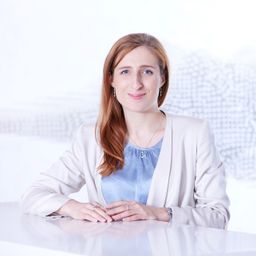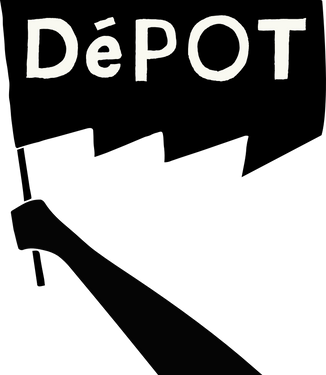
Anne Scheinhardt
Since 2022, Anne Scheinhardt has been serving as Archive employee (digitization and documentation) at the Deutsches Architekturmuseum (German Architecture Museum), Frankfurt am Main, after her work for the Photograph Collection of the Bibliotheca Hertziana – Max Planck Institute for Art History, Rome (BHR MPI) and as research assistant at the Chair for Tangible and Intangible Heritage at Paderborn University (2020–22). In Paderborn, she taught industrial heritage, art and architectural history from the 19th to the 21st century.
Anne Scheinhardt has been a PhD candidate at Humboldt University in Berlin since 2015, where she studied art history and business economics. In her dissertation, she is working on the transformation of historical industrial areas in the urban planning of Rome. Her research has been supported by grants and fellowships, such as of the BHR MPI and the German Historical Institute, Rome. Alongside her publications and study days, she has been organizing pop-up exhibitions in the field of science communication.
Elementy, w których Anne Scheinhardt uczestniczy
środa 31 sierpień, 2022
Rome Reloaded. Or Industrial Heritage Meets the ArtsSince the end of the Industrial Age, the treatment of its heritage has changed from demolition to preservation (Kierdorf/Hassler 2000). In Rome—which is usually not perceived as an industrial city—, over 60 related examples (Torelli Landini 2007) offer a wide field of research regarding visions for its future. Recently, the challenges to reload those artefacts have been accepted also by foreign...
Elementy, w których Anne Scheinhardt attends
niedziela 28 sierpień, 2022
Join the conference organisers and TICCIH board members for a welcome cocktail and some festive words of introduction, in the former forge of the École technique de Montréal, founded in 1909, now part of the Université du Québec à Montréal campus.
poniedziałek 29 sierpień, 2022
This session presents case studies and policy reviews that contribute to ongoing debate and international dialogue on the role of planning systems and conservation practices in addressing the challenges of citizen engagement—conserving local interests, place attachments alongside physical remnants of industrial heritage. Over the past half century, we have witnessed the development and changing focuses of urban planning and conservation discourses addressing industrial heritage. Relevant p...
Si la vallée du canal de Lachine a été le berceau de l’industrialisation canadienne, la géographie industrielle métropolitaine ne s’y est pas confinée, peu s’en faut, Outre les grandes concentrations d’entreprises des quartiers centraux, elle est constituée des réseaux infrastructuraux, d’une douzaine de centrales hydroélectriques et des ensembles manufacturiers disséminés dans une quinzaine de petites villes aujourd’hui intégrées dans l’aire métropolitaine. La conférence proposera un surv...
wtorek 30 sierpień, 2022
During this lunch break, you can come and discuss with the author about his most recent book.This is happening at the DePOT Table in the main hall of the conference. DePOT refers to the group "Deindustrialization and the Politics or our Time"; DePOT examines the historical roots and lived experience of deindustrialisation as well as the political responses to it. It is a SSHRC Partnership project consisting of 33 partner organizations and 24 co-applicants and collaborators from six ...
As a "continent” country, in which industrialization began as early as the 19th century, Canada has seen through deindustrialization and urban redevelopment, parts of this heritage have been either altered or destroyed. Yet, Canada still possesses a very significant industrial heritage. With Canada being a confederation, approaches to the protection and the safeguard of its industrial heritage differs throughout the provinces and territories of the country. The same is true of i...
This session will allow us to explore, through nine international case studies, the different strategies for the development of industrial heritage as well as their impacts on communities and their territory. The analysis of museums, cultural spaces, itineraries and urban developments will be an opportunity to highlight the questions of identity, meaning, relevance and impact that animate all the actors of this heritage in transformation.
Efforts to preserve industrial heritage occurs in a socio-economic and political context. But what is being preserved and for whom? And, relatedly, what is the relationship between industrial heritage sites and the deindustrialized working-class communities that often adjoin them? The keynote will consider the ways that the preservation of Montreal’s Lachine Canal, Canada’s premier industrial heritage site, has enabled gentrification processes that have forc...
Join us for an informal continuation of the discussion started with the public lecture.A drink will be offered to the first fifteen people.
środa 31 sierpień, 2022
This session brings together a set of studies focused on the uses adaptative reuses (and even replications) of industrial heritage in the larger context of its urban and social landscapes. Urban industrial memory, its social and territorial impacts, as well as its conservation and promotion, will be discussed from a variety of case studies ranging from Central and Southern Europe to Turkey, China and North America. The interdisciplinary approaches underlying each of the studies will also b...
In this roundtable we will resume and discuss main ideas and findings from the regular session on "Reinterpreting industrial heritage from a global perspective", which will be held in 7 slots from Monday through to Wednesday morning. During these days, we will deepen the discussion between the session’s participants and other colleagues, while spending time together on the congress’ floors and doorsteps. In addition, we can build on previous reflections some of us shared dur...
This session addresses a perpetuating disjunction between conceptualisation of heritage and heritage making in heritage studies vis-a-vis heritage management and conservation of industrial heritage sites. There is an inevitable impact of this disjunction on advancing policy in people- and place-centred approaches to heritage futures. This session aims to explore ways in which tangible and intangible traces of the past can be utilised creatively in shaping desirable places to dwell and work...
czwartek 1 wrzesień, 2022
Heritage is a sensitive word in architecture and urban design, bringing the coexistence of both limitations and opportunities in practical projects. Arguments arise whenever trying to figure out how to deal with an urban heritage, especially balancing both its historical importance and actual social needs. Industrial heritage is fairly representative of the abovementioned issue. As one of the most fragile heritage kinds, people tend to be not so deeply nostalgic about industrial heritage b...
This session addresses a perpetuating disjunction between conceptualisation of heritage and heritage making in heritage studies vis-a-vis heritage management and conservation of industrial heritage sites. There is an inevitable impact of this disjunction on advancing policy in people- and place-centred approaches to heritage futures. This session aims to explore ways in which tangible and intangible traces of the past can be utilised creatively in shaping desirable places to dwell and work...
This paper argues that practice of urban heritage management seems insufficiently developed for capturing the distinctiveness of a place, including its social and experiential values, as well as concerning its functional dimensions (Taylor, 2016). A problem of adaptation and re-use is of particular concern if we address heritage future of post-industrial sites. Despite a recent call for an improvement of informal tools of design governance, within the integrated ...
This session addresses a perpetuating disjunction between conceptualisation of heritage and heritage making in heritage studies vis-a-vis heritage management and conservation of industrial heritage sites. There is an inevitable impact of this disjunction on advancing policy in people- and place-centred approaches to heritage futures. This session aims to explore ways in which tangible and intangible traces of the past can be utilised creatively in shaping desirable places to dwell and work...
Meet the authors Heike Oevermann and Mark Watson, who together with Bartosz Walczak completed the TICCCIH comparative thematic study: “The Heritage of the Textile Industry” (Lodz, 2022),It may be downloaded free here: The Heritage of the Textile Industry (lodz.pl) or
This lecture will argue that the landscapes of industrial heritage that can be found in different parts of the world are directly related to the place-specific trajectories of deindustrialization. In other words: the different ways in which deindustrialization impacts on local communities has a direct bearing on the emergence of forms of industrial heritage. I will differentialte between deindustrialization paths and related industrial heritage regimes in a) Anglo-...



